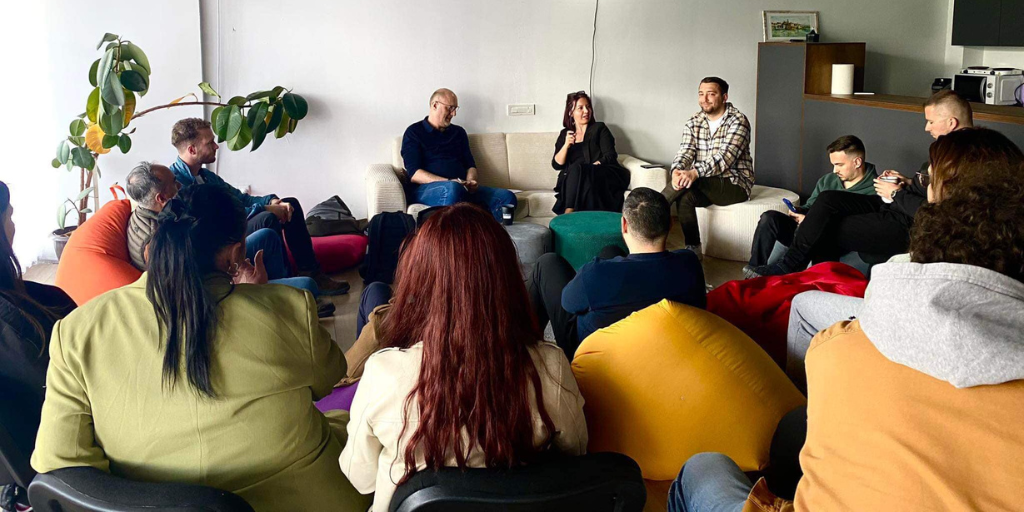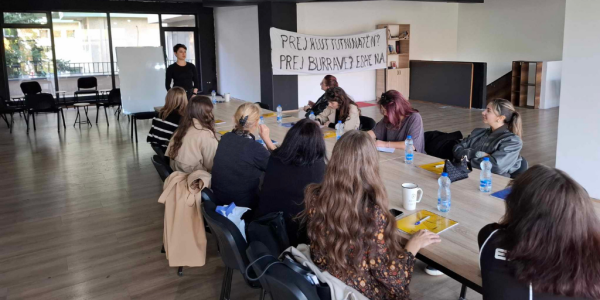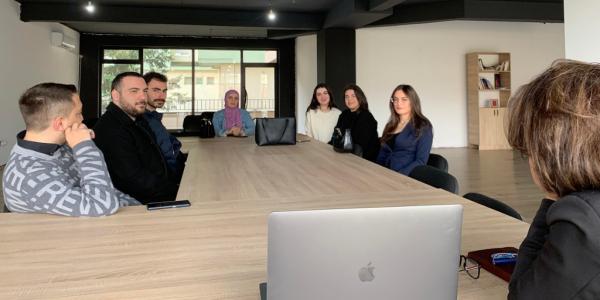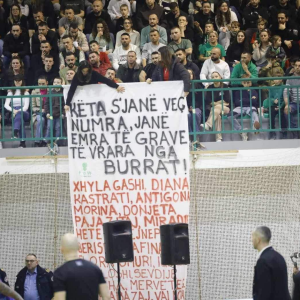
“I was already a vocal feminist activist in Mitrovica. I saw young girls who had potential, who could do more,” says Nerimane Ferizi, founder of the feminist NGO Fourth Wave in Kosovo*. Now she and other feminist activists are working together to help empower Kosovo's women and to fight against gender-based discrimination, which is largely ignored in the region.
Nerimane believes that the government of Kosovo is too “engaged in international politics and with our problem with the Serbian state that they forget about the problems they have at home.” She hopes that by putting the spotlight on feminist activism, this can lead to change.
She explains that Fourth Wave began by organising a public debate on gender inequality. "We did the first street action in Prishtina, and it was huge. After that, we organised 13 other actions, even though in the original project we had only planned five, as we saw a need to do more,” says Nerimane. These actions included protests, creating feminist street art and graffiti. The activists focused on smaller cities and conservative areas away from the capital.
Their actions have succeeded in making them visible. “Now every week we go on television, and we talk about women's position in society,” says Nerimane.
To leverage this attention into positive change, Fourth Wave has developed a Feminist Manifesto gathering the group's key demands. They are now distributing this among elected officials, local authorities and institutional representatives across Kosovo.
Fourth Wave also works to upskill women to become effective activists themselves. They have organised various literary evenings, where attendees can familiarise themselves with feminist literaturea and they are providing training for young women in public speaking.

Nerimane explains that Fourth Wave is a safe space for all women of Mitrovica. She relates that they were initially surpised when over three dozen women approached their offices looking for help against gender-based violence. "We are a new organisation and we had not foreseen that people would trust us so fast."
Fourth Wave provided legal assistance and representation. Eight lawyers were made available to the women, to counsel them on legal options at their disposal and to represent them in court. They have teamed up with another NGO to offer psychological help to the women.
They closely monitored the cases as they went to trial. “The entire judicial system has a very patriarchal mindset,” says Nerimane. "Sometimes they would not even let us enter the courtroom or follow the cases.” She admits it was hard for the activists to follow these trials and still believe that victims had access to a fair process. She relates that the police did an inadequate job when assisting survivors of gender-based violence.
Fourth Wave compiles weekly reports on violence against women, harassment and assault that they present to the police. They are preparing a report on these trials with findings and recommendations to reform the judiciary system. They firmly believe that this reform is vital, as there are two to three feminicides per week in Kosovo.

Mitrovica, where Fourth Wave is based, is a divided city. The southern part of the city is inhabited by Albanians, while Serbians live in the Northern part, which creates extra difficulties for feminist activities in the region and for the Fourth Wave team.
“Here, the city has three systems: religion, that is conservative; the government system, and traditions. Combined, they create an even stronger wall,” Nerimane explains.
She is that despite these divisions, two women from the Serbian community in Kosovo have already come to Fourth Wave for assistance. Nerimane explains that it can be particularly difficult to work in the Serbian-inhabited region, where many local NGOs and activists are reticent to engage with them.

Now thanks EED support, Fourth Wave is an important actor in the feminist movement of Kosovo, with team that works from Mitrovica across the region.
Nerimane is optimistic about the future. Fourth Wave has already created valuable networks and advanced the feminist debates in Kosovo. Now, they hope their Feminist Manifesto and the new generations of activists they are training can continue to empower women across the region.
* This designation is without prejudice to positions on status, and is in line with UNSC 1244 and the ICJ Opinion on the Kosovo Declaration of Independence.
This article reflects the views of the grantees featured and does not necessarily represent the official opinion of the EED.